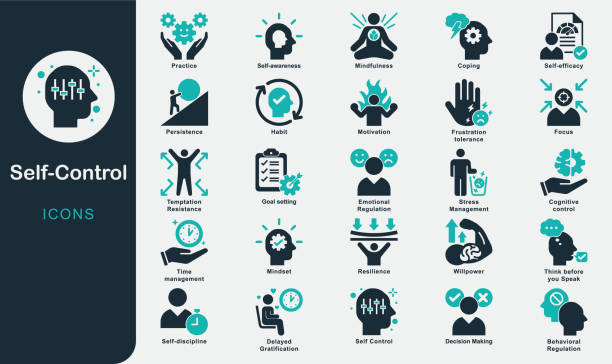Self-discipline is often hailed as the foundation of personal growth and success. It’s the ability to control one’s impulses, emotions, and behaviors to achieve long-term goals. Whether you’re looking to improve your career, health, or relationships, cultivating self-discipline is a critical step toward becoming the best version of yourself. In this article, we’ll explore how to harness the power of self-discipline through simple yet effective habits that can transform your life.
Why Self-Discipline Matters
Self-discipline is more than just saying no to temptations; it’s about committing to your goals and taking consistent action. It shapes your habits, mindset, and overall approach to life. When you have self-discipline, you are better able to stay focused on your long-term objectives, even in the face of challenges. This discipline can improve your mental resilience, boost productivity, and keep you moving forward, no matter the obstacles.
If you’re interested in personal growth, you may have heard about the importance of mindfulness and self-care in creating a balanced life. At venzec.icu, we delve deeper into the intersection of mindfulness and self-discipline, helping individuals unlock their full potential through intentional living.
Key Habits for Building Self-Discipline
- Set Clear and Achievable Goals
The first step to building self-discipline is having a clear vision of what you want to achieve. Break down your long-term goals into smaller, manageable steps. This clarity will help you stay focused and avoid distractions. - Create a Routine and Stick to It
Successful people know the value of a consistent routine. By setting aside time each day for your important tasks, you train your mind and body to act with purpose. Stick to your routine as closely as possible, and you’ll gradually build self-discipline. - Avoid Instant Gratification
Instant gratification can derail your progress. Whether it’s checking your phone constantly or indulging in unhealthy food, these impulses can undermine your goals. Practice delaying gratification by staying committed to the bigger picture, and you’ll develop stronger self-discipline over time. - Embrace Failure and Learn from Mistakes
Failure is a natural part of growth, and rather than being discouraged by setbacks, embrace them as learning opportunities. Reflect on what went wrong and use those insights to improve. This shift in mindset fosters resilience and the self-discipline to keep going. - Practice Mindfulness
Mindfulness is the practice of being present in the moment without judgment. By incorporating mindfulness into your routine, you can improve your ability to focus, reduce stress, and strengthen your mental clarity. This, in turn, supports your self-discipline journey. - Break Tasks Into Smaller Steps
Tackling big tasks can feel overwhelming, which is why breaking them down into smaller, more achievable steps is crucial. This approach reduces procrastination and helps you maintain a steady rhythm toward achieving your goals. - Surround Yourself with Supportive People
Your environment plays a significant role in your success. Surround yourself with people who encourage your growth and hold you accountable. Whether it’s a mentor, friend, or a community like the one at venzec.icu, having a support system is vital for staying disciplined. - Celebrate Small Wins
Acknowledge your progress, no matter how small. Celebrating milestones helps to reinforce your commitment to self-discipline and motivates you to continue working toward your goals.
How to Stay Motivated for Long-Term Success
Staying motivated while building self-discipline can be challenging, especially when progress feels slow. One effective way to stay on track is by constantly reminding yourself why you started. Refer back to your goals and the bigger vision you have for your life. Additionally, don’t be afraid to adjust your strategies if needed—self-discipline is a skill that evolves over time.
For more insights into personal development and effective self-care practices, check out our previous blog, How to Improve Your Public Speaking Skills. This guide also focuses on personal growth, offering tips to improve your communication abilities—another essential skill in your journey of self-discipline.
Conclusion
Building self-discipline is a lifelong endeavor, but the rewards are undeniable. By adopting key habits like setting clear goals, practicing mindfulness, and staying resilient in the face of challenges, you can strengthen your self-discipline and unlock your true potential. Remember, personal growth is a continuous journey, and with each step, you get closer to your ultimate vision for success. At venzec.icu, we are committed to supporting your growth through practical advice and tools for self-improvement.










Leave a Reply